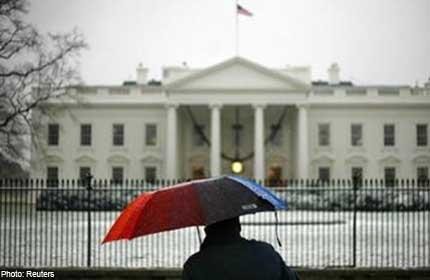In violent world, US companies must plan for 'unthinkable'


WASHINGTON - Companies and diplomats operating in some of the world's most dangerous and unstable places must plan for the unthinkable as terror groups arm up and form alliances to strike Western targets.
That was the message at a gathering of top multinationals and US government security experts from those who experienced first hand this year's attack on an Algerian gas plant, and the 1979 Iran hostage-taking.
Islamist militants attacked the remote In Amenas complex in the Algerian desert in January, taking hundreds of foreigners and Algerians hostage, in a raid that left 39 dead. It ended after three days when Algerian forces stormed the facility.
Despite years of detailed security assessments and planning, the plant's deputy general manager Mark Cobb said the assault came out of nowhere, adding that the takeaway from the assault was that "you have to think the unthinkable."
"I was as shocked as anyone by what happened. It was unprecedented certainly in Algeria and the industry as a whole," Cobb told a meeting of the Overseas Security Advisory Council, which promotes security cooperation and information-sharing between US businesses and the State Department.
Cobb had just made his first cup of coffee when he heard a single gunshot, and then heavy machine gun fire. He managed to phone BP offices in London to raise the alarm.
But he was unprepared for the 35 militants, armed with rocket-propelled grenades, mortars and Kalashnikovs, who stormed the plant jointly run by Britain's BP and Norway's Statoil, and hunted down foreigners to kill.
And despite managing to escape into the nearby sand dunes, he knew that as soon as Algerian forces became involved in the rescue attempt, the situation would get bloodier.
"Algerians do not negotiate with terrorists... and we assumed that the Algerians would take a swift response and that's what they did," agreed Nicole Deal, who was the regional security officer at the US embassy in Algiers.
"In Amenas was a game-changer. It changed the bottom line assumptions that security officers going there work with.
"Now you have to plan and you have to prepare for the worst type of attack, the Westgate type of attack, the In Amenas type of attack... that might be the new normal," she said, referring to a Nairobi shopping mall siege.
The American diplomats who were seized in the 1979 siege of the US Embassy in Tehran recalled how, based on past protests, they had expected it to end within a few hours or days after students first stormed the building.
Only when the provisional Iranian government resigned and there was "no one at the end of the phone" for Washington to talk to did they realise they were in unchartered waters, said John Limbert, the embassy's then political officer who was held for 444 days.
As shown in the Oscar-winning film "Argo," it fell to CIA officer Tony Mendez to implement an audacious plan to get six Americans out of Iran, who had fled to the nearby Canadian embassy, by pretending they were a Hollywood film crew.
"Lot of times you have good ideas out of desperation," said Mendez, who was played in the film by actor Ben Affleck.
As the committees are "wringing their hands," his advice was "get that plan on the table, keep it on the table, and when you get ready to go, do it quickly."
US Secretary of State John Kerry told the gathering that his department had warned 78 US companies or overseas organisations or faith-based groups about a specific threat against them this year.
"Everyone here understands the risks, you know the dangers," he said, while stressing: "You can't retreat. There is no fortress.
"And nothing would work if we did, frankly, because now, more than ever, I believe we need to be engaged in the world to help move it forward in this transformation that has taken place."